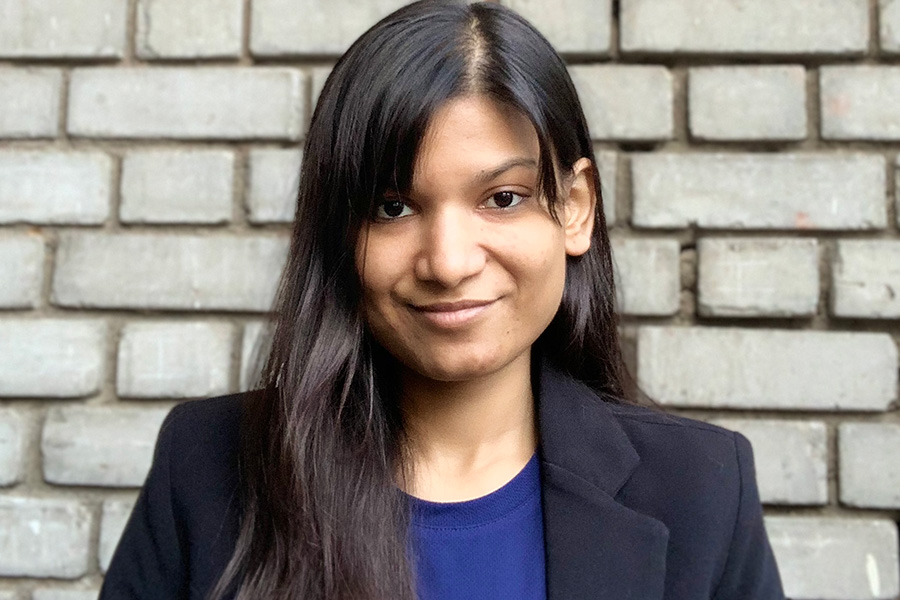Driven by Curiosity and Empathy, Saloni Sinha Seeks to Design Solutions
Saloni Sinha brings an interdisciplinary curiosity to her studies in Carnegie Mellon’s Master of Software Engineering (MSE) program. With undergraduate training in manufacturing engineering and biological sciences, plus professional experience developing financial applications, Saloni sees software as a creative means to solve problems across domains.
A thirst for knowledge and empathy guides Saloni’s leadership approach. She describes her style as “introverted” — focused inward on gathering multiple viewpoints to inform decisions. “It’s about being able to see all aspects of a project and...understand my [capstone project] team members’ perspectives,” she explains. Courses on architecture, communication, and requirements analysis have impressed upon her the need to tailor solutions to specific situations and people.
The program’s emphasis on cultivating a reflective practice and her penchant for introspection shifted Saloni’s assumptions about leadership. “I used to think leadership was an extroverted person’s game,” she admits. Now, she recognizes that different personality types can lead effectively. With this insight, she stepped up at the beginning of the summer semester to serve as team lead for her capstone project. The experience provided valuable chances to hone communication, connect team members’ insights, and solicit feedback. “I started with essentially trying to understand the different practice areas to get a more holistic view of the project and communicate the same to others. At the same time, effective leadership is about listening, not just communicating your ideas. The feedback from the team mentors and my teammates, who all have very different professional backgrounds, about what worked” was invaluable.
Saloni aspires to have a career in which she can tackle complex design challenges. She finds designing software architecture intellectually stimulating, allowing her to explore technical trade-offs. One of her favorite classes, Formal Methods, has equipped her to formally specify system behaviors at the design level before implementation. Saloni aims to apply this rich conceptual framework. “I have learned how to design technology and solutions...on a more abstract level to arrive at a high-quality implementation,” she shares.
The James E. Tomayko Scholarship recognizes Saloni’s exceptional initiative and growth. “It’s given me confidence in my approach and the way I think which will help me navigate challenges that I will face in the future” she said. Above all, she credits MSE with teaching her to “critically analyze situations and empathize to understand others’ perspectives. No single solution fits every scenario, and MSE has given me the tools to differentiate between approaches to different problems.” She looks forward to applying these humanistic software engineering values to build products that solve real-world problems.
The intensive MSE workload has impressed upon her the importance of balancing difficult technical training with personal health. She carves out small moments of respite through meditation, reflection, and exploring new cuisines. Overall, Saloni has grown from the demanding yet supportive MSE environment. She emerges hungry to keep learning, lead with humility, and develop technology that makes a difference.
